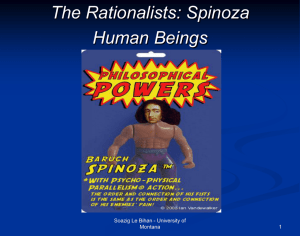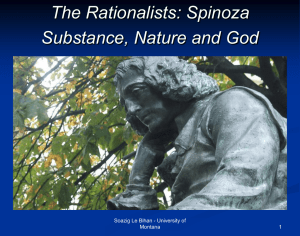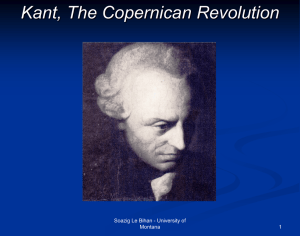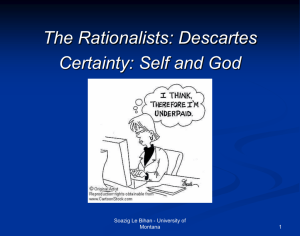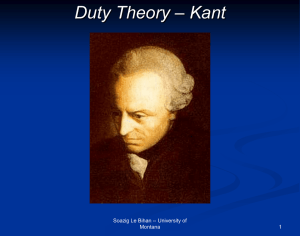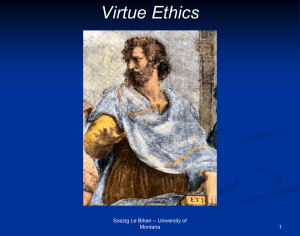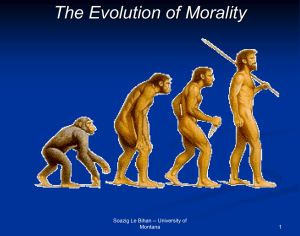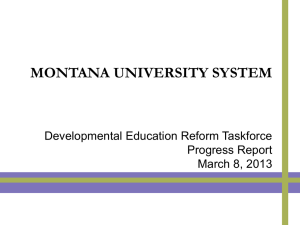The Cartesian Doubt
advertisement
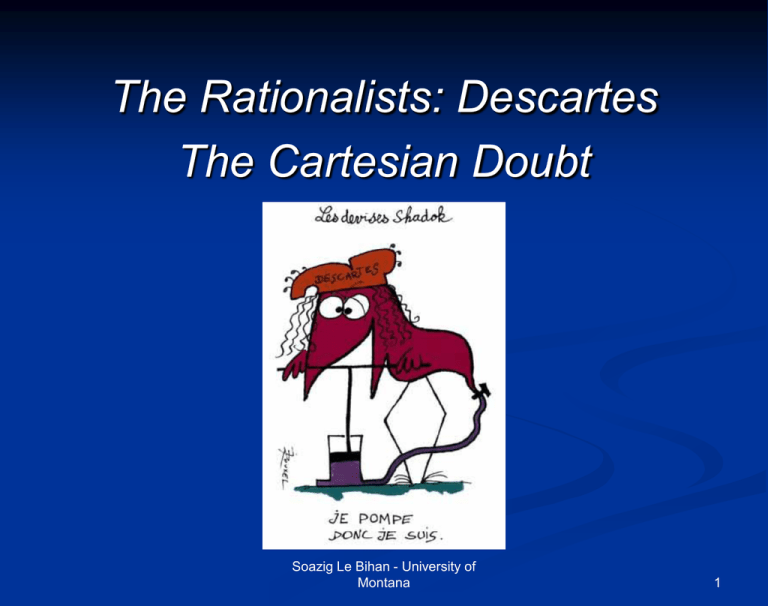
The Rationalists: Descartes The Cartesian Doubt Soazig Le Bihan - University of Montana 1 Descartes: Life and Works Life: 1. Brilliant but not complaisant student 2. “Bene vixit qui bene latuit” 3. Dies in Sweden (Queen Christina) Interests: 1. Not Aristotelian philosophy 2. New system 3. Pragmatic matters Works: 1. The World – physics 2. Discourse – Meditations – Principles 3. Passions of the soul and letters to Elizabeth Soazig Le Bihan - University of Montana 2 The Meditations: Aim and Method Topic and Style: - Topic: Metaphysics - Style: Analytic (by contrast to synthetic) Aims: - Avowed: Proof of the existence of God and separation of the soul from the body - Ultimate: Give a definite foundation to the new science Soazig Le Bihan - University of Montana 3 The Meditations: Aim and Method Method: The Rational Stance - Defense of the use of reason for religious matters - Proper method: demonstration and certainty Two enemies: - Prejudices - Senses Soazig Le Bihan - University of Montana 4 The Cartesian Doubt: What is it and what is it for? General Project: - General destruction of all his opinions – Why? No firm foundation - “to raze everything to the ground and begin again from the original foundations” in order to build firm science The Cartesian Doubt: - Universal - Hyperbolic - Radical - Methodological Soazig Le Bihan - University of Montana 5 The Cartesian Doubt: The Senses Why the senses? One of the roots of knowledge Arguments: - The traditional argument is not enough - Dream argument: no sufficient criterion to tell that we are not dreaming. Result: are doubtful (and hence taken as false): - The existence of the external world - The existence of my own body Soazig Le Bihan - University of Montana 6 The Cartesian Doubt: Mathematical Notions The most fundamental constituents: Anything left? Arguments: Analogy with painting Painting: Dream Components: body parts Most General: colors Soazig Le Bihan - University of Montana Imagination / bodies corporeal nature 7 The Cartesian Doubt: The Evil Genius Would it be possible that I be deceived concerning math?: Deceiving God? The case of the Atheist – even less reason to believe he or she can attain firm knowledge Conclusion – Not a single part of the entire body of knowledge seems to be indubitable Soazig Le Bihan - University of Montana 8 The Cartesian Doubt: Conclusion The danger of habits: doubting is not easy The power of will: focus and resolution Soazig Le Bihan - University of Montana 9
